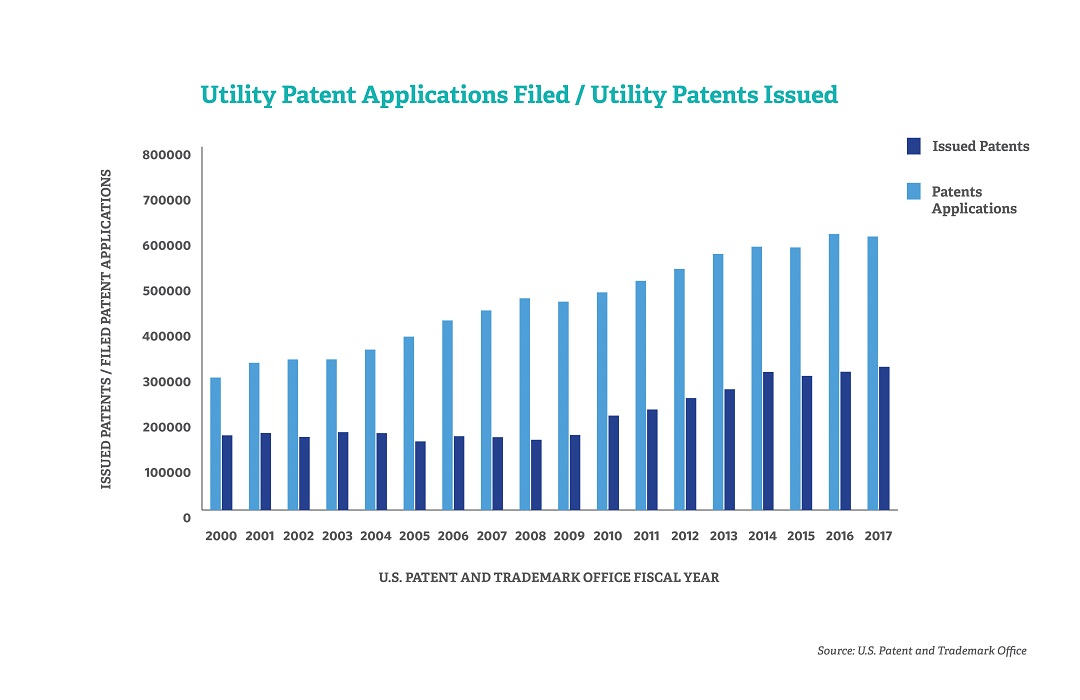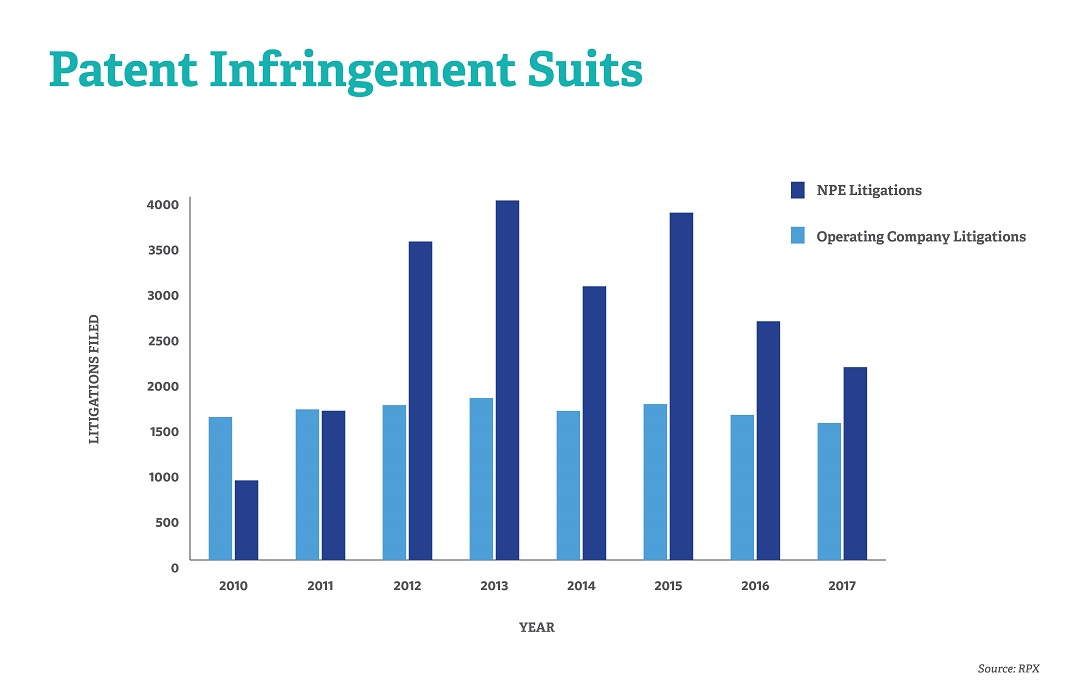Why Patent Quality Matters
Patents have been vital to America’s innovation success story for more than 200 years.
The right to grant patents and other intellectual property rights is written into the United States Constitution. Patents serve to promote innovation by affording patent holders, whether they are individuals, businesses, universities or others, incentives to invest in the discovery of novel inventions by having the ability to protect those inventions from unauthorized use.
Unfortunately, many issued patents do not further the goal of promoting innovation. This is because they are not novel, seek to address unpatentable subject matter, or are obvious when existing inventions are considered, all of which key tests for patentability. These patents are nonetheless issued for many reasons, but often because patent examiners lack access to the most pertinent prior art, time and resources necessary to properly examine applications.
The problem has been compounded by the huge increase in the number of patents issued.

The High Cost of Invalid Patents - Innovation
Invalid patents are a threat to financial services innovation and commerce. Our financial networks depend on the continual development of technologies that allow for safe and sound, as well as efficient, payment transactions through a secure financial infrastructure. Invalid patents affect many other industries and companies of all sizes in similar ways.
Patent quality matters in connection with maintaining and advancing critical financial infrastructure because investment in new supporting technologies is imperative, but may not occur or occur less quickly if invalid patents can be used to challenge the new and emerging technologies that support critical components of, for example, the financial industry’s core payments infrastructure.
The High Cost of Invalid Patents - Cash Settlements
Financial services and other industries are also threatened because some patent holders seek to exploit invalid patents to secure cash settlements that are paid only because it is less expensive to settle rather than to fight back against the assertion of invalid patents. Start-up companies and small business are particularly vulnerable because they often lack the money and other resources necessary to combat threats from invalid patents, and may be forced to leave the market completely.
A growing number of patent holders asserting invalid patents fall under the heading of non-practicing (licensing) entities or NPEs. They do not make or sell products that practice the inventions they hope to license, and the patents that they assert are often invalid because they claim rights in technologies that are the same as those that already exist or that would be obvious in light of existing technologies. NPEs are sometimes known as patent “trolls.” While not all NPEs deploy dubious patents, many do. These NPEs are not to be confused with other NPEs who license valid patents on behalf of themselves or operating companies, universities or inventors.
Because of the high cost of patent litigation, which can run into the millions of dollars, companies of all sizes and types are forced to settle and pay a licensing fee to holders of invalid patents. The cost to invalidate a patent through litigation is often considerably higher than the price to settle a case. According to a study conducted by the American Intellectual Property Law Association (AIPLA) in 2013, the cost to defend against a patent through the discovery phase where the damages claimed are over $10 million is about $1.5 million. If the case moves forward to trial, litigation defense will cost even more. So, it can cost more to prove the patent invalid than to pay-off an NPE. A $500,000 settlement can look attractive to a defendant—even if it is totally undeserved. For many NPEs, quick settlements are the strategy, especially if it is one of dozens it expects to achieve.
Settlement costs related to invalid patents impact companies of all sizes and threaten their ability to invest in technologies that are actually novel and products that provide consumers new and innovative choices.
